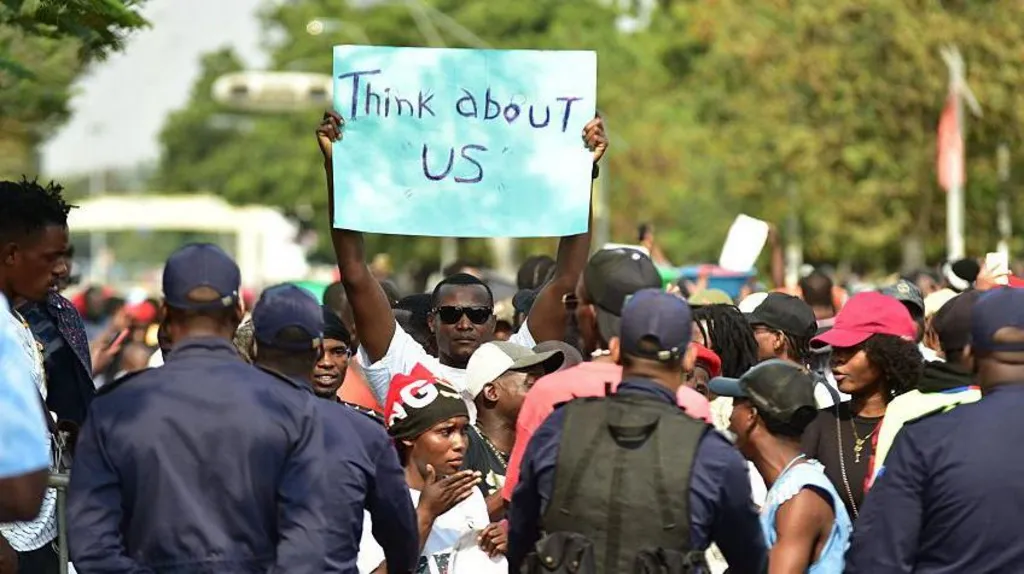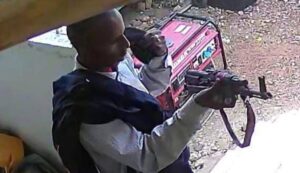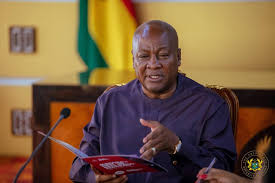Fear still lingers in parts of the Angolan capital, Luanda, months after violent protests in July left at least 30 people dead and thousands arrested. What began as a strike by taxi drivers against a sharp rise in fuel prices quickly spiraled into three days of unrest, with blocked roads, burning tyres, looted shops, and fierce clashes between demonstrators and police.
The disturbances spread to other provinces and became one of the most significant waves of protest since the end of Angola’s civil war in 2002.
As the country prepares to celebrate 50 years of independence from Portugal on 11 November, the protests have reignited concerns over poverty, inequality, and frustration among Angola’s youth.
Anger beneath the oil wealth in Luanda’s working-class neighborhoods, where protests were strongest, many remain afraid to speak openly, fearing reprisals after widespread arrests. Yet for some, the desperation outweighs the risks.
“Things may have got a little out of control, but we needed to make that much noise to wake up those in power,” a 24-year-old street vendor told the BBC, asking to remain anonymous.
Having dropped out of school before completing secondary education, he now sells soft drinks along one of the capital’s busiest avenues to support his family. “We have a voice. This country is rich for some, but miserable for so many of us,” he said.
Youth unemployment at crisis levels With a median age under 16, Angola is one of the world’s youngest nations yet youth unemployment stands at 54%, according to official data. Out of 18 million young people of working age, just three million have jobs in the formal sector.
“I only sell on the street when I can get enough money to buy drinks. Some months, I don’t sell anything at all,” the vendor explained. “That’s why we can’t stay silent.”
Sociologist Gilson Lázaro said the unrest was no surprise, describing those who protested as “the dispossessed.”
“These are young people, the majority, who have nothing left but their lives. That is why they took to the streets without fear,” he told the BBC.
According to Dr Lázaro, the protests “lifted the veil on a social problem that has long existed but which the political elite has preferred to ignore,” warning that Angola is facing a “deep social, economic and political legitimacy crisis.”
Disillusionment with leadership The ruling Popular Movement for the Liberation of Angola (MPLA) has governed the country throughout its five decades of independence. When President João Lourenço took over in 2017 from José Eduardo dos Santos who ruled for 36 years, hopes were high for change.
Lourenço promised to tackle corruption, diversify the economy, and create jobs. But eight years on, critics argue little has improved. Inflation remains high at around 18%, and a 2024 Afrobarometer survey found 63% of Angolans believe the economy has worsened compared to the previous year.
Young people have borne the brunt of these challenges and have been central to anti-government protests in recent years, rallying against corruption, police brutality, hunger, and poverty. Yet nothing matched the scale of July’s deadly unrest.
For 20-year-old political science student Lea Komba, the protests were both “terrifying and expected.”
“We live in a country where young people are ignored by those in power,” she said. “Protests are the only way to show dissatisfaction with the precarious conditions we face.”
Source: BBC.com(AFP via Getty Images)





